I received an email from a couple just returning from volunteering in Kitui. I can't tell you how excited I am to read of their experiences and advice. It was great information! I'll share excerpts below. I am also hoping to hear final word on the sale of the condo - hoping to close on Monday the 27th but, as always, there are a few glitches.
Here are some lines from the email:
"We had a great time in Kitui. Don’t worry if you get there and think you won’t be able to stick the basic conditions for 6 months, I arrived and decided I would challenge myself to do 1 month and then I was heading back to Nairobi! After a few days I felt completely at home and really enjoyed life there. We would both go back tomorrow.
Visits to Nairobi - You can get to Nairobi for a break away from the village whenever you decide to really as long as you organise a lift down there a week or so in advance with Nicholas, the project manager.
Water - When we were there we drank bottled water all the time and just used the standpipe water for washing. ( A drop of Dettol or similar in your washing water is a good idea just to kill any nasties!) We went through a 10 litre bottle of water every 2 days, but that was for two of us and that was when the weather was at its hottest. It wasn’t as hot when we left so we were changing the big water bottle every 3 days. Take as much water up there with you as you can physically fit in the truck because you can only buy it when you get a ride into Kitui town and as I said that isn’t guaranteed. The standpipe water up there has a very high salt content and we found it to be completely unpalatable, as did every other volunteer I know! The big water bottles when empty are also in big demand by the villagers as containers. As we left, the village was due to be connected to mains water which in theory should be drinkable, but I would still go prepared with bottled initially.
Phone - There is reception for cell phones in the Village so it won’t be a problem phoning your mum. You can also take your phone and charge it up at the administration block when you need to.
Work - I understand if you feel you might like a different experience to education which is exactly how I felt. However, it was my skills and experience in education which were very definitely needed and so that is what I did and I absolutely loved every minute of it. My role was as co-ordinator, not teaching, as kamba- speaking teachers are employed to teach. We met up with Sister Mary in England last week as she is over here at the moment on a visit and she tells me that they are about to double the number of classes at school as from September. I know they will desperately need a good organiser at school, and to me Ed you sound just the ticket! When the staff at school knew that you were coming to the village they became very excited at the thought of you being involved at school. We had just reached a point where we had nicely arranged all the current library books on new shelving we had the carpenter make, and 4,000 more were on their way over from America! One thing I hoped to establish before I left and didn’t have time to, was to put in place a proper library loan system where the children could borrow a book to take to their homes. (They absolutely love books but need training in the use and care of them.) The library was then going to be rehoused in the newly completed administration building that Jim built and which was only completed a few days before we left so there will be TONS of help needed at school. Have I done a good job selling it to you?! I hope so, it’s a wonderful place. To have such close contact with the children every day ( and Nyumbani is all about the children at the end of the day) is what the volunteers who worked on the farm etc. all said they wished they could have had more of. Jim and I loved the school and I make no apologies for giving you the hard sell, as it is very close to our hearts! The staff were lovely too, we had such good times together. Other types of work are general building and working on the farm in the main. Nicholas the project manager will advise you of any other projects they have in mind.
Stuff to Bring - Definitely a powerful flashlight and batteries, preferably back -up flashlights as well as you inevitably end up loaning them out to people. The quality of batteries you buy in Kitui is not great and they are expensive so either take them with you or buy them in Nakumat in Karen. Wind- up torches are really useful as the battery thing doesn’t matter then. It goes dark at around 6.30 to 7pm and it is DARK! We took candles and matches too which we found really helpful, you can get these in Karen. A mosquito net and anti -malarials of course as it is a malarial area. The food is plentiful but gets monotonous. We were never hungry and didn’t find it a problem, but we had taken some standby packet-pasta dishes, porridge oats and instant noodles etc. Chocolate and all kinds of goodies are available at the supermarket in Kitui should you get desperate! Breakfast tended to be just a slice of bread and margarine. If you want things like jam and peanut butter they are available in Kitui but you have to buy them yourself as thay are not provided in the guest house. Very milky tea is provided but not coffee so you’d need to take your own coffee and maybe tea bags. Fruit is available on the market in Kitui but again you have to buy it yourself if you want it. Shower is pour cold water over your head from a bucket, we bought our own plastic pouring jug and bucket in Nakumat and I am glad we did as buckets aren’t provided but come in very useful for all kinds of things, as do a couple of plastic washing up bowls. You are only supplied with one plastic bowl for washing. I’d take a few plastic clothes pegs and a length of clothes line. Also a pen knife and a knife for spreading eg peanut butter as you can’t find them anywhere in Kitui. A cup and plate and bowl is useful too. We bought a ccoking pot on the market which we found useful. Journal to record the amazing experiences you will have!
Clothes - It gets very hot so light cool clothes for the day plus a sweatshirt for night if it gets chilly or the mossies start to bite. The red dust gets everywhere so your whites won’t stay white for long! Hat essential. Gloves may be helpful if you are working on the farm. Comprehensive first aid kit including Cypro, and I’d recommend tea-tree oil as its great for fungal infections like ringworm, worked a treat for me. Toilet paper not provided, can buy in Kitui. Basically, everything is available in Nakumat, Karen which I wish I had known beforehand.
Critters! - There are snakes in Kitui which they don’t usually tell people about till they get there, but there are also snakes in Nairobi! It just means you ALWAYS need to use a flashlight at night as this is when they emerge and its not advisable to go walking through bush, stay to the paths. Scorpions are there, mainly encountered on the farm (but not in school!!). That’s about it for critters. There are lots of funny looking cricket spider things on the walls but they are completely harmless and quite cute.
Safari - You are advised to take a break maybe once a month, usually go down to Nairobi for the weekend. We did a trip to Masai Mara and Nakuru right at the end with them. Cheaper tented version which is quite basic but we loved Masai Mara, not sure I’d bother with Nakuru again.
You are going to have an amazing experience Ed. Enjoy every moment of it, it will go so quickly. The people in the village are so welcoming and friendly and the kids just great. Good luck with your final preparations Ed, it’s a busy old time isn’t it! Best wishes, Jean and Jim
skip to main |
skip to sidebar

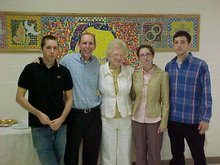

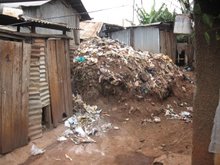
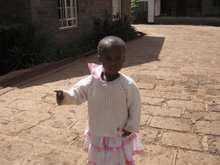

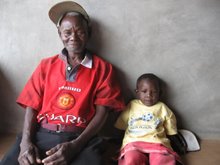
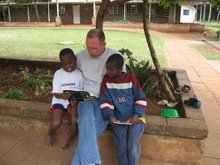


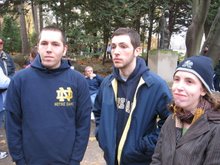
At ND Game
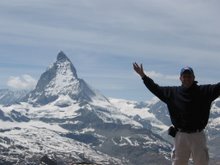
I am this grateful!
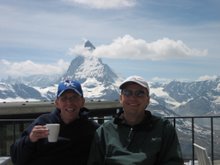
Ed and Chris
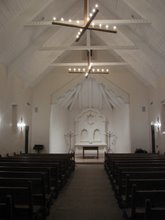
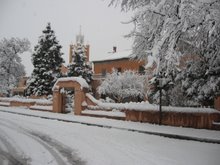
OLD TOWN
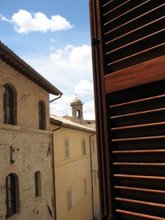
Assisi 2006
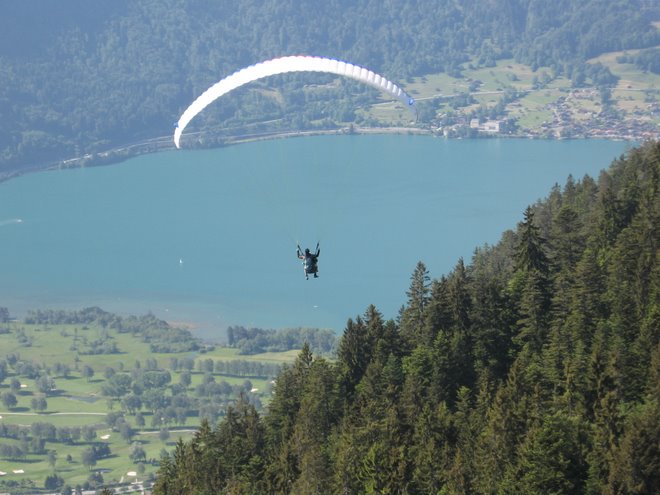
A Leap
The spiritual journey is one of continually falling on your face, getting up, brushing yourself off, looking sheepishly at God, and taking another step.
THE MASAI WOMEN EMPOWERMENT PROJECT
For more information on the Masai Project in Athi River, please visit the following site:
www.mwep.blogspot.com
To donate: please see below.
www.mwep.blogspot.com
To donate: please see below.

DONATE
WANT TO DONATE?
If you would like to donate to my journey and my projects in Kenya, checks may be sent to :
Immaculate Heart of Mary Parish
MISSION FUND
5876 Veterans Way
Burlington KY 41005
Make sure it is marked clearly for Ed Colina's Mission work.
If you would like to donate to my journey and my projects in Kenya, checks may be sent to :
Immaculate Heart of Mary Parish
MISSION FUND
5876 Veterans Way
Burlington KY 41005
Make sure it is marked clearly for Ed Colina's Mission work.
LOOK AT SOME PICS OF THE VILLAGE - Some other good VILLAGE BLOGS
UPDATE PICS ON FLICKR
ALSO - CHECK OUT MICHAEL'S AFRICAN BLOG
Jennifers Blog from Kenya - More Village Info
Both have info and pictures from the Nyumbani Village
ALSO - CHECK OUT MICHAEL'S AFRICAN BLOG
Jennifers Blog from Kenya - More Village Info
Both have info and pictures from the Nyumbani Village
CONTACTING E.M.C.
COOL SITE
The best way to contact me beginning in September is via email. I'll get it when I can. I am not sure how often I will be able to get into Nairobi from the Village - whether monthly or less frequently. ecolina@aol.com Pics should be posted here.
Donations can be made via the school. 859 689-4303 They will be forwarded to me by my daughter. It is all appreciated and will be well-used!
Packages to Kenya are discouraged because of the customs costs upon arrival. Snail mail can be sent to the address listed here and I'll get mail when in Nairobi. Email is probably best.
Beginning August 14th my U.S. cell phone is no longer in operation.
The best way to contact me beginning in September is via email. I'll get it when I can. I am not sure how often I will be able to get into Nairobi from the Village - whether monthly or less frequently. ecolina@aol.com Pics should be posted here.
Donations can be made via the school. 859 689-4303 They will be forwarded to me by my daughter. It is all appreciated and will be well-used!
Packages to Kenya are discouraged because of the customs costs upon arrival. Snail mail can be sent to the address listed here and I'll get mail when in Nairobi. Email is probably best.
Beginning August 14th my U.S. cell phone is no longer in operation.
Family Celebration

By Mahatma Gandhi
Recall the face of the poorest peson you have seen and ask yourself if the next step you take is going to be of any use to that person.
"Feed the Children" Video Clips
There are a couple of interesting Kibera Slums video clips from Feed the Children Organization. I have no association with the organization but was interested in the clips. CLIPS HERE


Some Background on Kibera Slum
The slum originated in 1920 as a Nubian soldiers' settlement. The British colonial government of the time allowed them to squat on a hillside outside Nairobi, primarily because the British felt the Nubian population could be trusted during the Kikuyu-dominated Mau Mau movement of the 1950s.
After Kenyan independence in 1963, however, various forms of housing were made illegal by the government, rendering Kibera unauthorised on the basis of land tenure. Essentially, since the early 1970s landlords have rented out their property to a significantly greater number of tenants than legality permits. Since the tenants, who are extremely poor, are unable to obtain or rent land that is "legal" according to the Kenyan government, the slum-dwellers find the rates offered to be comparatively affordable. The number of residents in Kibera has increased accordingly despite its unauthorised nature.
This process has been exacerbated because, over time, other tribes have moved into the area to rent land from the Nubian landlords. Since then, the Kikuyu have come to predominate the population and by 1974 had effectively gained control over administrative positions. This demographic change subsequently determined which of the dwellings, all of which are technically illegal, are demolished or permitted by the government. This occurs primarily through political patronage, as certain owners are protected by local government officers largely based on their Kikuyu ethnicity, and changes in administrative personnel may have drastic impacts on a landlord's security.
Kibera has residents coming from all the major ethnic backgrounds with some areas being specifically dominated by one tribe (eg. Kisumu Ndogo that is predominantly Luo). Many are coming from rural areas due to the problems of rural underdevelopment. This multi-ethnic nature coupled with the tribalism of Kenyan politics has led Kibera to be the site of small ethnic conflicts throughout its near 100 year history (most recently in 2002 in which many resident's homes were attacked by arson).
Kibera is located southwest of Nairobi city centre and is the same size as Manhattan's Central Park (approximately 2.5 square kilometres (600 acres)). Nairobi Dam is to the south. It is sited approximately 5 km south east of the city centre of Nairobi. It holds more than a quarter of Nairobi's population. The estimated population density is 300,000/km². There are a number of villages, including Kianda, Soweto, Gatwekera, Kisumu Ndogo, Lindi, Laini Saba, Siranga/Undugu, Makina and Mashimoni.
A railway line passes through Kibera, thus passengers heading for Kisumu can view the slum. Kibera has a railway station, but due to absence of effective commuter train system in Nairobi, most Kibera residents use buses and Matatus to reach city centre. However, riding the Matatus proves to be considerably dangerous, due to the occasional carjacking that goes on in Nairobi especially in the evenings and at the end of the month. Irresponsible driving in the area and poor traffic law enforcement also makes travel perilous.
Kibera is heavily polluted by soot, dust, and other wastes. Open sewage routes, in addition to the common use of Flying toilets, also contribute to contamination of the slum with human and animal faeces. The combination of poor nutrition and lack of sanitation accounts for many illnesses. Not only are death by disease and conflict common inside this slum, but it is estimated that 1/5 of the 2.2 million Kenyans living with HIV live in Kibera.
Winnie - 2 Years Old

NYUMBANI INFORMATION
Kibera Podcast - Mature Viewing

Radio Interview with Fr. D'Agostino
KIMANZI AND A GRANDFATHER

AIDS in Africa
Presently there are 40 million people infected with HIV/AIDS globally, with more being infected every day. HIV/AIDS is 100% lethal if left untreated. The UN estimates that 68 million people will die in sub-Saharan Africa because of AIDS in the next twenty years.
That is:1.7 times more than the 40 million deaths in World War II, the most destructive war in human history.
5 times more than the 13 million deaths in the previous two decades of the AIDS epidemic.
307 times more than the 221,000 deaths in the Asian tsunami disaster of 2004.
Other Statistics:In 1990 there were 7 million people infected with HIV/AIDS in sub-Saharan Africa.
In 2000 there were 25.3 million infected.96 percent of HIV infected persons live in developing nations where drug therapies are largely unaffordable.
Presently there are approximately 15 million children orphaned by AIDS in sub-Saharan Africa. That number is expected to grow to 40 million in the next two decades.
3 million people died of AIDS in 2000. 12.1 million children were orphaned.
Every 5 minutes 3 people die of HIV/AIDS. That is over 850 deaths every day or 315,000 a year. With each death, at least one more orphan is usually left.
Every minute 10 people are infected with HIV/AIDS, which equates to 600 new infections an hour, 15,000 a day.
Friends

EMC in ASSISI

Enquirer Article
I agreed to talk to the Enquirer in hopes that it might more widely advertise our search for a new principal. I appreciate the article but am embarrassed. Now it's official - I have to do something! Here it is.
Fun . . .
"Pulling out the chair beneath your mind And watching you fall upon God - There is nothing else for Hafiz to do that is any fun in this world!"-Shamsud-din Mohammed Hafiz Muslim Mystic (1320-89)
Ash Barker - Make Poverty Personal
"The idols of this age say you can buy meaning in life in a department store, while the real God weeps that creation has swallowed such delusions whole without chewing and longs for us to love our neighbour in need. The starving millions have no voice against the shrieks of temporal happiness those pursuing such items risk all for. Authentic loving of God and neighbour then is still the great need of the hour ."

Henri Nouwen
"People who pray stand receptive before the world. They no longer grab but caress, they no longer bite but kiss, they no longer examine but admire."
Merton Gets It Right
"My first human act is the recognition of how much I owe everybody else."
My 3 Loves

At ND Game
Zermatt Summer 2006

I am this grateful!
For Times Like These

Ed and Chris
New Year's Eve Prayer
God of the seasons, Lover of the ages, Master of every moment: You who are beyond time yet within all time. We return to you what you have given to us — the moments, the minutes, the hours, the days, the weeks, the months, and the year of 2006. Time has been gracious to us again, and we thank you for freely giving us these human bodies, these events, and these relationships. We have lived another year and we have died another year, and now you are granting us the beginnings of another.
We now hand over to you the blessed year, 2006, with all that it gave us and all that it took from us, knowing that both are necessary, just like our breath. We trust you in both the givings and the takings, the inhalings and the exhalings. May every breath of 2007 be a breath of the Holy Spirit, joyfully received and joyfully returned, beginning with this one right now.
Amen
God Alone-New Year's Eve

Merton Speaks
"MY LORD GOD, I have no idea where I am going. I do not see the road ahead of me. I cannot know for certain where it will end. Nor do I really know myself, and the fact that I think that I am following your will does not mean that I am actually doing so. But I believe that the desire to please you does in fact please you. And I hope I have that desire in all that I am doing. I hope that I will never do anything apart from that desire. And I know that if I do this you will lead me by the right road though I may know nothing about it. Therefore will I trust you always though I may seem to be lost and in the shadow of death. I will not fear, for you are ever with me, and you will never leave me to face my perils alone."
New Years - New Mexico

OLD TOWN
Perfect Joy

Assisi 2006
Blog Archive
- August (1)
- June (1)
- May (10)
- April (7)
- March (21)
- February (5)
- January (4)
- December (8)
- November (5)
- October (1)
- September (5)
- August (3)
- July (4)
- June (10)
- May (6)
- April (1)
- March (5)
- February (11)
- December (15)
- November (10)
- October (15)
- September (8)
- August (13)
- July (7)
- June (7)
- May (5)
- April (13)
- March (8)
- February (10)
- January (8)
Interlaken Summer 2006

A Leap